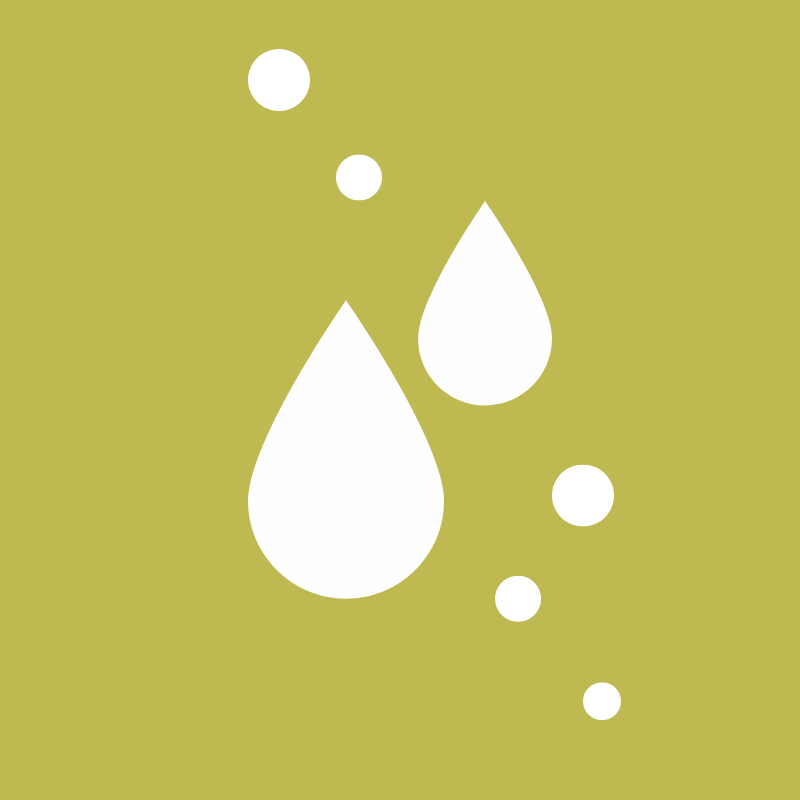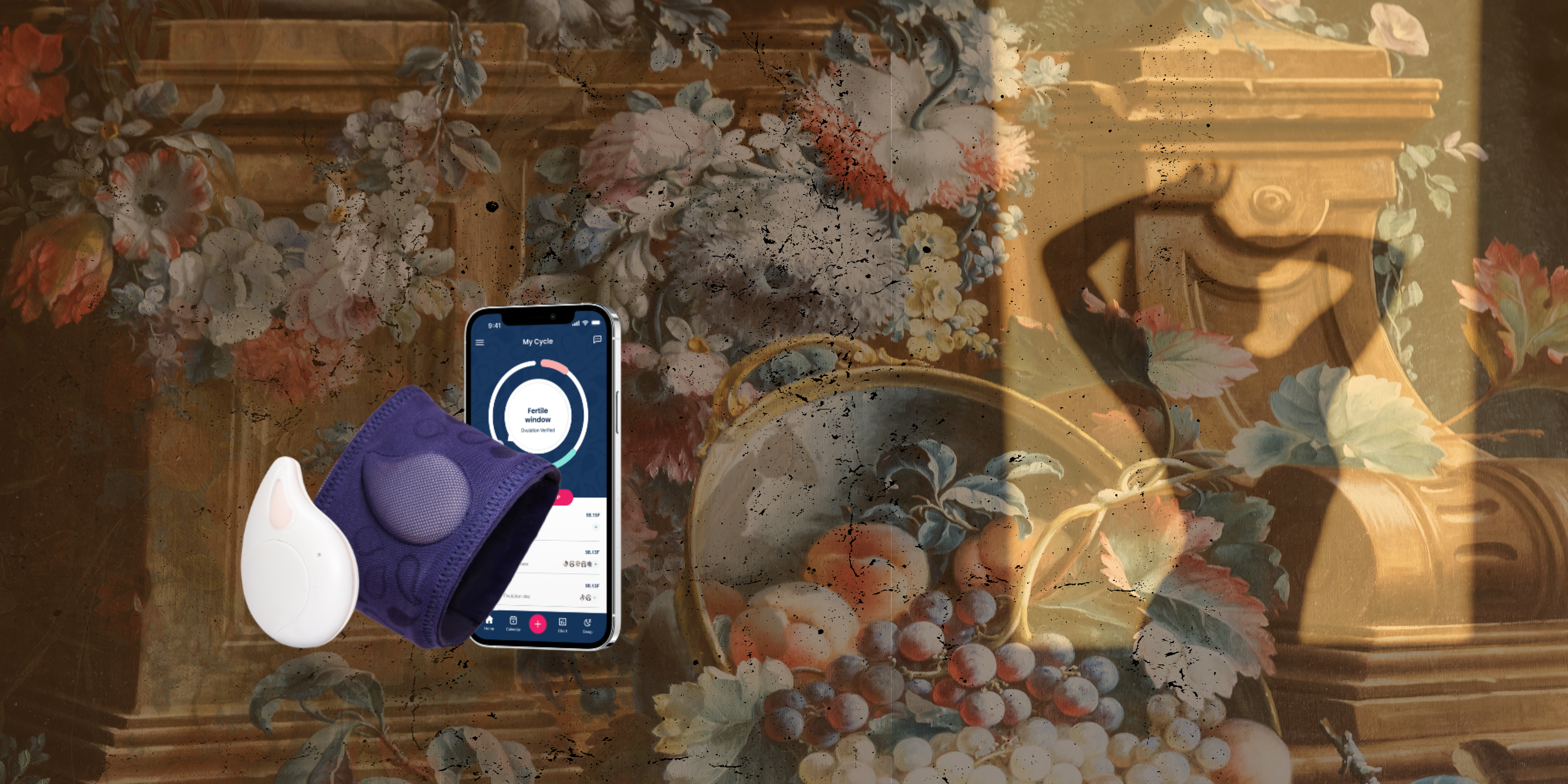




Fertility Monitoring
Tempdrop to monitor your fertility. Track your cycle whilst you sleep, understand your fertility window better
Tempdrop Fertility Monitor
Tempdrop Fertility Monitor
Tempdrop brings the full fertility tracking solution to your smartphone. Whether you are looking to increase your chances of conceiving, or are practicing fertility awareness methods, Tempdrop is tailored to you.
Sizing:
S/M fits 8.5"-15.5"/21.5cm - 39cm.
L/XL fits 12.5"-18.5" /31.5cm- 47cm.
Please measure your arm in advance of placing your order
Hurry up, only 3 items left in stock.
Share this product
Get Your Bundle Now
Menopause Bundle - Navigate change with clarity and care.
TempDrop Periods Bundle - Balance your cycle. Know your flow.
Tempdrop Fertility Bundle - Track. Nourish. Prepare.
How It Works
Fertility & ovulation tracking
Introducing Tempdrop - a wearable fertility monitor.
Tempdrop sensor & app: A lifelong companion.
Tempdrop Replacement Armbands
Tempdrop Replacement Armbands
Upgrade your Tempdrop experience with our comfortable and durable replacement bands. Designed with your convenience in mind, these bands ensure a perfect fit for every user while maintaining the seamless functionality of your Tempdrop device.
Key Features:
- Custom Fit: Adjustable straps to accommodate all arm sizes for a secure and comfortable fit throughout the night.
- Premium Materials: Soft, hypoallergenic fabric that’s gentle on the skin and built to withstand daily use.
- Easy Installation: Replace your old band in seconds with our hassle-free design.
- Breathable Design: Enhanced airflow ensures all-night comfort, even for sensitive skin types.
- Stylish and Versatile: Available in neutral tones to complement your Tempdrop device.
Whether you need a spare or a replacement, these bands are the perfect accessory to keep your Tempdrop functioning at its best. Stay consistent with your tracking without missing a beat.
Compatibility:
Exclusively designed for use with the Tempdrop wearable thermometer.
Keep your Tempdrop secure and comfortable with our high-quality replacement bands—because your wellness journey deserves the best.
Hurry up, only 2 items left in stock.
Share this product
Ovulation tracking: Four Easy Steps
Step One: Wear before sleep
Before you go to sleep, press the drop-shaped button to turn on your Tempdrop sensor. Place the band on your upper arm and leave it on throughout the night.
Step Two: Sync whenever
Remove once you are up for the day and sync with the Tempdrop app whenever convenient.
Step Three: Add your symptoms
Track your symptoms to verify ovulation and learn about your cycle phases.
Step Four: Get results
View the chart and interpret your results. Upgrade to premium for automatic interpretation.

Recently on The femme Journal
We are here to help you with every stage of your fertility journey. Some of our recent blog posts may interest you.
Why "Just Get IVF" Isn’t the Answer: Infertility, Bias, and the Mental Load on Women
It’s National Infertility Awareness Week—a time to open up the conversation about what it really means to struggle with fertility and to challenge the misconceptions that often surround it. One of the most frustrating phrases people facing infertility hear is: “Why don’t you just get IVF?” While often well-meaning, this statement oversimplifies a deeply personal, complex, and sometimes painful journey. It assumes IVF is a one-size-fits-all solution, ignoring the realities of medical limitations, financial barriers, and emotional toll. More than that, it reflects a broader issue—how infertility is often placed squarely on women’s shoulders, reinforcing outdated biases and adding to the mental health burden they already carry. IVF Isn’t Always an Option For many, IVF is not as simple as booking an appointment and walking away with a baby. There are multiple reasons why IVF might not be the right—or even possible—path: 💰 The Cost – In the UK, NHS-funded IVF is often a postcode lottery, with access varying depending on where you live. Private treatment can cost tens of thousands of pounds, putting it out of reach for many. 🩺 The Medical Reality – IVF is not a guaranteed fix. Success rates vary widely depending on age, underlying conditions, and other factors. Some people aren’t even candidates for IVF due to medical reasons. 🧠 The Emotional Toll – IVF can be gruelling, involving hormone treatments, invasive procedures, and the emotional rollercoaster of hope and disappointment. For many, it’s not just about trying to conceive—it’s about navigating loss, grief, and uncertainty. 🗣️ The Assumption That IVF Is the Only Path – There are many ways to build a family, and not everyone wants to—or can—pursue assisted reproduction. Adoption, surrogacy, donor conception, or even choosing to live without children are all valid paths. The Gendered Burden of Infertility Infertility isn’t just a medical issue—it’s a societal one, and it disproportionately affects women’s mental health. The assumption that women must be the ones to fix infertility, to endure treatments, to put their lives on hold, and to answer endless intrusive questions is rooted in deep-seated sexism. 👀 The Scrutiny – Women are expected to take responsibility for fertility struggles, even though male factor infertility accounts for around 50% of cases. The burden of "fixing" the issue, seeking treatment, and managing emotions often falls on women. 🤐 The Silence – Talking about infertility can still feel taboo. While there’s growing awareness, many women feel pressure to keep their struggles private to avoid judgment or pity. This isolation can worsen feelings of anxiety and depression. 😞 The "Just Relax" Myth – Many people still believe infertility is a matter of stress rather than a medical condition. This puts further pressure on women, making them feel responsible for something they have no control over. What Needs to Change If we really want to support people facing infertility, we need to start by changing the conversation. 💡 Stop Offering Unsolicited Advice – Instead of saying “just get IVF,” acknowledge that infertility is complex. Try asking, “How are you feeling?” or “Is there anything I can do to support you?” 💡 Recognise That Infertility Affects Everyone – Infertility is not just a “women’s issue.” It affects couples, individuals, and families, regardless of gender. 💡 Push for Better Access to Care – Fertility treatments should not be limited by geography or financial privilege. Advocating for fairer NHS access and workplace support is crucial. 💡 Prioritise Mental Health – Infertility can be emotionally devastating. Normalising conversations around therapy, support groups, and community connection can make a huge difference. Infertility Deserves More Than Quick Fixes Telling someone to "just get IVF" dismisses the complexity of infertility and the emotional, physical, and financial weight it carries. Instead of simplifying the conversation, let’s start listening—really listening—to what people are going through. Infertility is not just about treatment options; it’s about the very human experience of longing, resilience, and redefining what family means. To anyone struggling: You are not alone. Your feelings are valid. And your path—whatever it looks like—is entirely yours to define. ❤️ #NationalInfertilityAwarenessWeek #InfertilityMatters #MentalHealthMatters
Learn moreLet's Talk Women's Health, Holistically - Quick(ish) Fire Questions with The Cheshire Acupuncturist
We popped in to see The Cheshire Acupuncturist for a quick chat all about women’s health. From easing painful periods and balancing hormones to supporting fertility and pregnancy, we asked her how acupuncture can play a supportive role through different stages of a woman’s life.
Learn moreBoost Your Chances of Conception with the twoplus Fertility Sperm Guide
If you're on the journey to parenthood and seeking effective, non-invasive methods to enhance your chances of conception, the twoplus Fertility Sperm Guide might be the solution you've been looking for.
Learn moreExploring the Link Between Complementary Treatments and Fertility: A Focus on Acupuncture
In recent years, many individuals and couples have turned to complementary treatments as an alternative or supportive approach to fertility. In contexts where conventional fertility treatments may be ineffective, inaccessible, or simply not desired, complementary methods—especially acupuncture—are increasingly being considered for their potential to improve reproductive outcomes. 🤰 Understanding Acupuncture and Its Principles 🧘♀️ Acupuncture is a key component of traditional Chinese medicine that involves the insertion of fine needles at specific points on the body. The aim is to rebalance the flow of energy, or “qi”, and to stimulate the body’s natural healing mechanisms. While the concept of qi may seem foreign to Western medicine, many practitioners and researchers are exploring how the stimulation of specific points might influence various bodily functions, including hormonal regulation, blood flow, and stress reduction. 🌿 How Acupuncture May Influence Fertility 🔍 Acupuncture’s potential benefits for fertility are thought to stem from several mechanisms: Hormonal Regulation:Research suggests that acupuncture may help modulate the body’s hormonal balance. By influencing the hypothalamic-pituitary-ovarian axis, acupuncture could contribute to more regular menstrual cycles and improved ovulation patterns. ⚖️ Improved Blood Flow:Some studies indicate that acupuncture can increase blood flow to the reproductive organs. Better circulation may enhance the environment of the uterus and ovaries, potentially improving the chances for fertilisation and implantation. 💓 Stress Reduction:Infertility journeys are often accompanied by significant emotional and physical stress. Acupuncture has been shown to reduce stress levels and promote relaxation by triggering the release of endorphins. This stress relief is crucial, as high stress can negatively impact reproductive health. 😌 Immune System Modulation:Emerging evidence suggests that acupuncture might help regulate immune responses, which is particularly relevant for individuals experiencing unexplained infertility related to autoimmune factors. 🛡️ The Evidence: What Do the Studies Say? 📚 While research on acupuncture and fertility remains a topic of debate, several studies have explored its effects on reproductive outcomes. Some clinical trials have reported improved pregnancy rates when acupuncture is used as an adjunct to fertility treatments, although results are not uniformly positive. Critics argue that placebo effects may account for some of the perceived benefits, yet many patients report enhanced well-being and reduced stress after acupuncture sessions. 🌟 In the absence of effective or available conventional fertility treatments, these complementary approaches offer hope. They provide a non-invasive, natural option for those seeking to enhance their fertility through methods that work with the body’s own regulatory systems. 🌺 Complementary Treatment in Context 🤝 It is important to note that while acupuncture shows promise, it is not a guaranteed solution for infertility. Complementary treatments should be seen as part of a holistic approach to reproductive health. For some, these treatments offer a way to empower themselves in the face of challenging fertility journeys, providing an additional tool to explore alongside lifestyle changes such as nutrition, exercise, and stress management. 🍏🏃♀️ Furthermore, integrating complementary treatments into a fertility strategy highlights the importance of personalised care. Every individual’s body and fertility challenges are unique, and what works for one person may not work for another. As such, those considering acupuncture should consult with both their healthcare providers and qualified complementary medicine practitioners to create a tailored plan. 📝 Conclusion 🌈 Acupuncture and other complementary treatments are increasingly recognised as valuable components of a broader approach to fertility. For many individuals—especially when conventional treatments are not effective or accessible—acupuncture offers a gentle, holistic alternative that may help restore balance, reduce stress, and improve reproductive health. 💖 While more research is needed to fully understand the mechanisms at play and to validate its efficacy across larger populations, the experiences of many patients continue to fuel interest in acupuncture as a complementary option. Whether as a stand-alone approach or as an adjunct to other therapies, acupuncture represents a meaningful way to support the journey towards achieving fertility in a natural, empowering manner. 🌟 If you’re exploring all your options, consider discussing complementary treatments with your healthcare team to determine if they may be right for your individual needs. 😊
Learn more



























